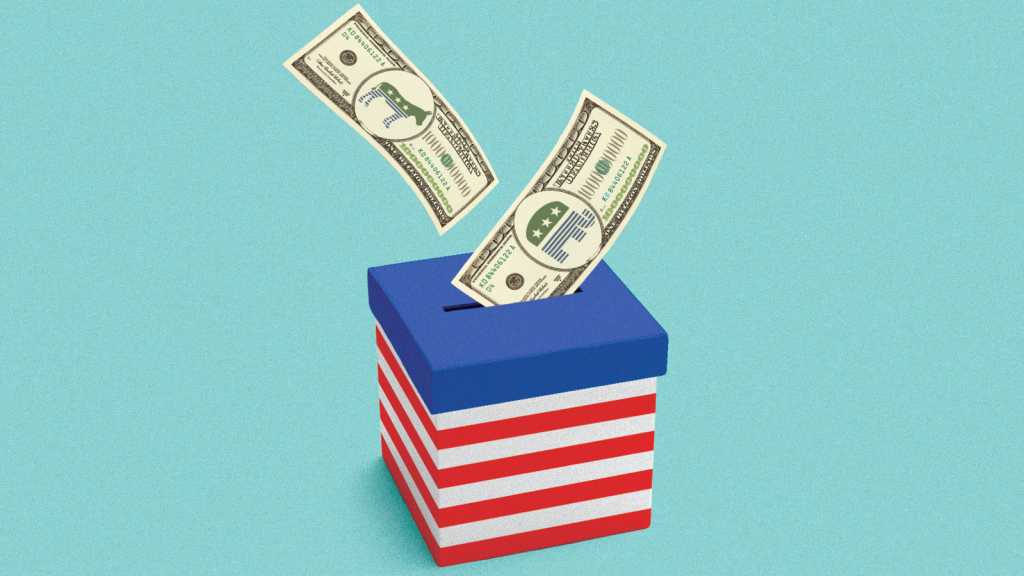Democracy for Sale: How Billionaires Shape American Elections and Policy

By Mohammad Hammoud
The recent American presidential election has revealed a significant flaw in the democratic process. This flaw is the excessive influence of wealthy individuals, specifically billionaires and corporations, on political outcomes. With Donald Trump's reelection, the role of tycoons in shaping political discourse has never been more pronounced. This influence raises serious concerns about the integrity and fairness of democracy, as elections increasingly seem determined by financial power rather than the genuine representation of the people's interests.
Immediately following the election of President Trump, the stock market surge benefited the wealthiest Americans, revealing how close connections between financial elites and political leaders can yield rapid returns. This reality poses a significant challenge to the foundations of democracy, where the voices of the wealthy frequently overshadow those of average voters. The trend indicates a political landscape in which policy decisions prioritize the interests of a select few over the broader public good, undermining the principle of equal representation that is essential for a healthy democracy.
In his article "Election 2024: How Billionaire Avengers Destroyed Democracy," David Sirota contends that the election cycle was tainted by an unprecedented surge of funding from billionaires, which turned the electoral process into a spectacle that erodes democratic principles. Both major political parties participated in a bidding war driven by dark money, effectively transforming elections into auctions where the highest bidder sets the agenda. This trend prompts essential questions about the integrity of democracy and the impact of wealth on political outcomes.
As the election unfolded, voters faced a relentless barrage of advertisements framed within the narrative of "saving democracy." However, beneath this veneer lay a stark reality: the election was less about addressing the electorate's needs and more about the interests of the donor class. A staggering $16 billion was spent on the federal election, much of it from anonymous sources, highlighting a system where the preferences of average Americans are rendered nearly irrelevant. Research indicates that public opinion has minimal impact on policy decisions, suggesting a disconnect between the electorate and their representatives.
The campaigns of both parties showcased a troubling normalization of big-money politics. On the Democratic side, Kamala Harris's candidacy relied heavily on dark money, with significant funding from anonymous donors. This dependence on wealthy benefactors compromised the integrity of her campaign and aligned her agenda with corporate interests. Meanwhile, Donald Trump openly solicited funds from billionaires, promising legislative favors in return, further entrenching the transactional nature of modern politics.
The implications of this financial arms race extend beyond campaign strategies; they reflect a systemic issue where policy discussions are stifled by the fear of alienating wealthy donors. Critical issues such as healthcare, climate change, and economic inequality were largely absent from electoral discourse, as candidates avoided topics that might provoke backlash from their financial backers. This anticipatory obedience to the whims of the wealthy illustrates a profound crisis in democracy, where the voices of ordinary citizens are drowned out by the clamor of billionaires.
The 2024 election also saw figures like Elon Musk emerge as central players, contributing vast sums to pro-Trump efforts and positioning themselves as public faces of the campaign. This trend raises alarming questions about the future of democratic governance: if elections can be bought, what does that mean for the principles of representation and accountability?
Moreover, the media's role in this landscape cannot be overlooked. The failure to adequately address the implications of big-money politics has led to a sanitized electoral discourse, where corruption is downplayed, and the focus shifts to finding "nicer billionaires" rather than addressing systemic issues. This complicity further entrenches the status quo, making it increasingly difficult for grassroots movements to gain traction.
In conclusion, the influence of billionaires on the American election system highlights a fundamental flaw in democracy. The ability of a small group of ultra-wealthy individuals to inject vast sums of money into elections undermines the principle of equal representation and raises questions about the fairness of the system. This concentration of financial power creates an uneven playing field, where the voices of ordinary American citizens are drowned out by the influence of money. The intertwining of business interests and political influence complicates the democratic process and raises concerns about conflicts of interest and potential corruption. Addressing these issues is essential to ensuring the integrity and fairness of the American election system.
Comments




